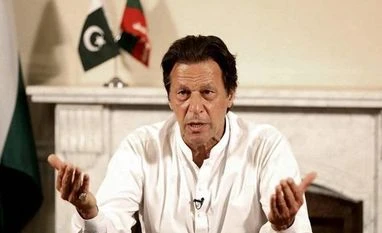Sometime this week, Pakistan will call a joint session of the two Houses of Parliament to pass two Bills, which are crucial for the country to avoid being shifted to the black list of the Financial Action Task Force (FATF).
Pakistan got a reprieve in June when Covid-19 forced the terror financing watchdog to put off its review meeting until October. The FATF had warned Pakistan that it had made progress only on 14 of the 27 legal and public policy changes it needed to bring about if it wanted to move out of the grey list. The worst-case scenario would be Pakistan featuring in the black list, along with North Korea and Iran, if it did not act.
Islamabad got cracking. In July, Foreign Minister Shah Mahmood Qureshi said the government had prepared eight Bills to curb money laundering and terror financing. Once these were passed, Pakistan would be back on the “white list” .“India has been attempting to have Pakistan pushed into the black list. If this were to occur, you know better than me, the effect this will have on the economy” he told reporters in Multan last month.
What followed had little to do with India and mostly to do with contradictions in Pakistan’s internal political system. The Lower House of Pakistan’s Parliament, the National Assembly, follows a system of legislative scrutiny that is similar to India’s Parliamentary standing committees to thrash out issues that the Opposition and the ruling party may not agree on.
Negotiations, compromise, and accommodation follow and then the law is debated and passed in the House. Five Bills were cleared by the National Assembly in a matter of days. These included the Anti-Terrorism (Amendment) Bill, 2020, the Limited Liability Partnership (Amendment) Bill, 2020, the Companies (Amendment) Bill, 2020, the Control of Narcotic Substances (Amendment) Bill, 2020, and the Islamabad Capital Territory Trust Bill, 2020. Later, the government pushed through the United Nations (Security Council) (Amendment) Bill, 2020.
Collectively known as the FATF Bills, they sought to effectively implement the resolutions of the UN Security Council imposing sanctions of assets freeze, an arms embargo, and travel ban on entities and individuals, along with providing the Pakistani state with more oversight in financial and commercial transactions, so that entities were not misused either by political parties or individuals to fund terror operations.
This appears to have been easier said than done. The Upper House — the Senate, where the government does not have a majority — rejected two Bills: the Anti-Money Laundering (Second Amendment) Bill and the Islamabad Capital Territory Waqf Properties Bill. While wrangling is still on about the legality of getting a joint session to pass the laws (and the laws themselves), there is little doubt that these will be passed eventually. But, bitterness and rancour that accompany the debate reveal the fault lines running through the political establishment.
Members of the Senate say for the record they object to the way the state has strengthened itself under the guise of meeting FATF demands. “The Opposition only wanted to stop the political use of the laws … We cannot allow 90 days’ detention under the pretext of economic terrorism,” members of the Senate, especially from the Opposition Pakistan Muslim League-Nawaz (PML-N), said.
The real reason seems to be different. Prime Minister Imran Khan said the Opposition knew it had a majority in the Upper House and was using this to demand amnesty under the National Reconciliation Ordinance (NRO), promulgated by Gen Pervez Musharraf in 1997. The law allowed the government to drop charges of corruption and money laundering against bureaucrats, politicians and political workers, and but struck down by Pakistan’s Supreme Court.
The Opposition says it wants the National Accountability Bureau (NAB) to be scrapped, not the NRO. Politicians remain the NAB’s target for political coercion, manipulation, and, engineering, Opposition leaders say. The NAB, Opposition leaders alleged, has been used extensively against them by the Imran Khan government. PML-N leaders, including Nawaz Sharif, Shehbaz Sharif, and Maryam Nawaz, have faced action under the NAB. Former President and PPP leader Asif Ali Zardari, too, was remanded in NAB custody in a corruption case last year.
None of this has to do with India. It has only peripherally to do with the FATF. But this much is clear: If Imran Khan is unable to pass the Bills, Pakistan will face an extremely rocky financial future as few nations will agree to do business with it.
Unlock 30+ premium stories daily hand-picked by our editors, across devices on browser and app.
Pick your 5 favourite companies, get a daily email with all news updates on them.
Full access to our intuitive epaper - clip, save, share articles from any device; newspaper archives from 2006.
Preferential invites to Business Standard events.
Curated newsletters on markets, personal finance, policy & politics, start-ups, technology, and more.
)